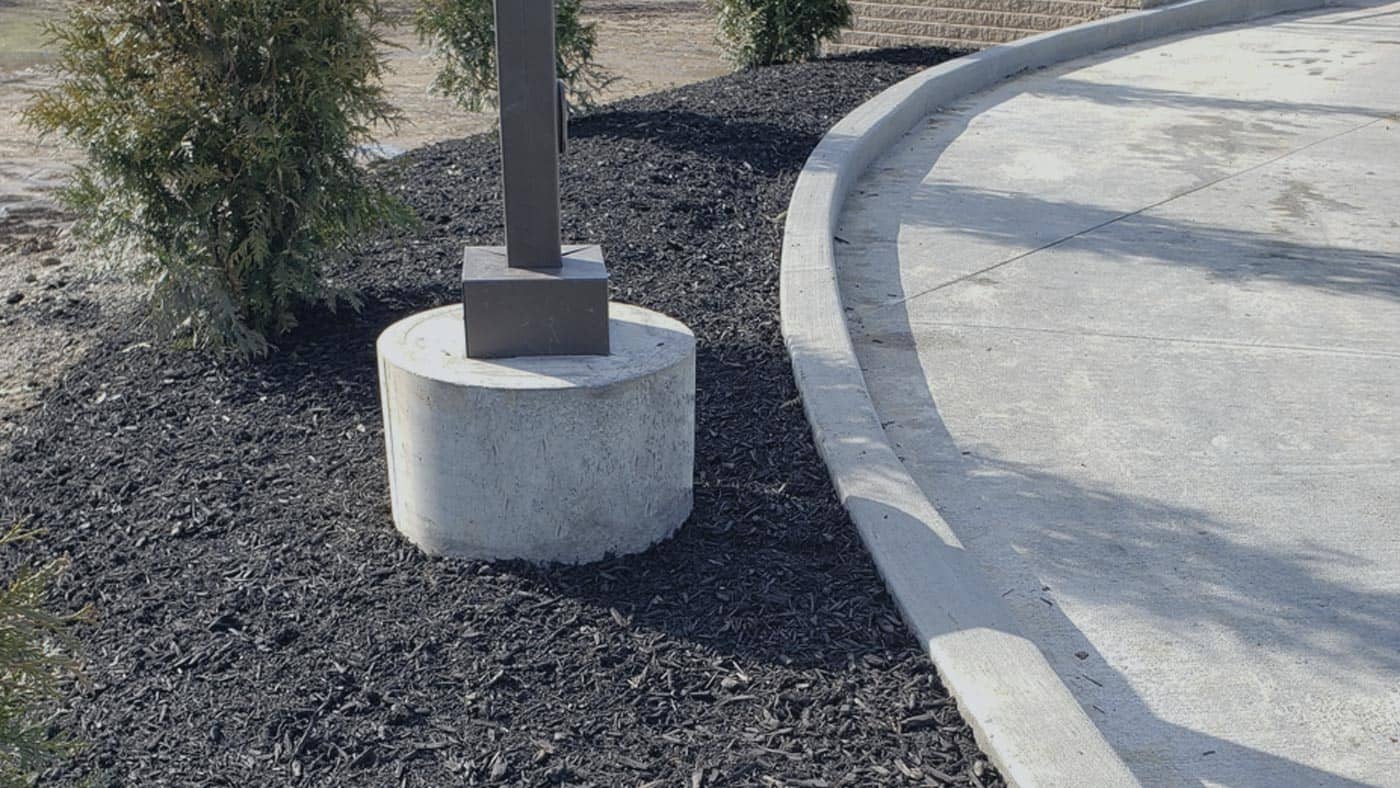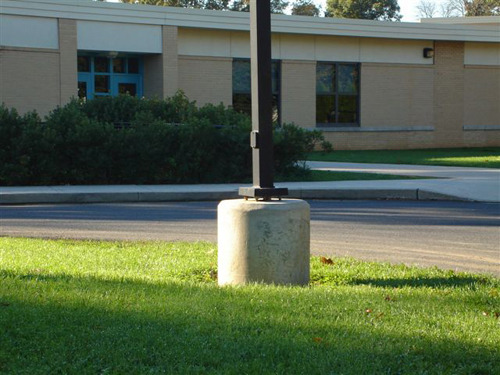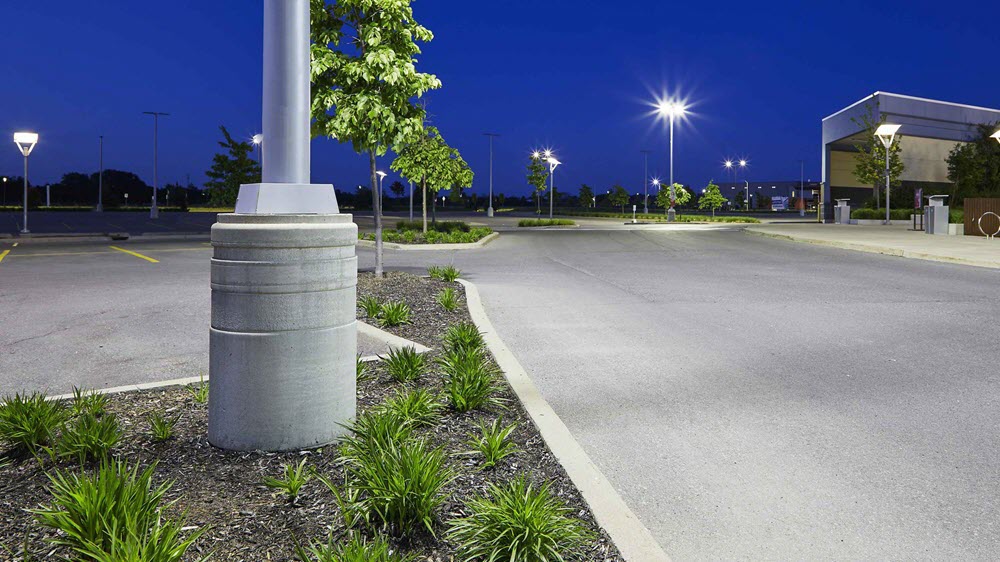Flood Light Base Servicesin Almont MI
Comprehensive Flood Light Installation for Enhanced Safety
We Are Locally Owned & Operated For Over 37 Years
Contact Us Today!
We Serve Businesses In And Around The Following Cities:
About Flood Light Base Services
Introduction: The Significance of Flood Light Bases
If you have a commercial property in Almont, the chances are that you may have considered the idea of having floodlights installed. But beyond the obvious fixture itself, there is something equally important that often goes unnoticed— the flood light bases. This critical component, plain in sight but often under-appreciated, plays a pivotal role in floodlight installations.
While floodlights provide security and enhance visibility, it’s the firmness of the flood light bases that guarantees the light’s stability and longevity. For commercial properties in Almont, the relevant benefits and applications can extend far beyond simple illumination. In this guide, we will delve deep into the subject, discussing the step-by-step process, the astounding benefits, and the real-world commercial applications of flood light bases in the city.
Understanding Flood Light Bases: What, Why, and How?
Flood light bases are the foundational structures that support and stabilize floodlights. These bases are usually made from robust materials such as concrete, steel, HDPE plastic, or cast iron to ensure durability and resilience against varying weather conditions. Now, you might wonder why so much emphasis is placed on these fairly low-tech items. Here’s why.
The effectiveness of any floodlight is significantly influenced by the quality of its base. A well-designed and correctly installed flood light base will securely hold the floodlight, ensuring optimal performance and longevity, whereas a poor quality or inadequately installed base may lead to instability, frequent maintenance issues, and even safety risks.
In commercial settings, choosing to engage professional services like those provided by D&J Contracting ensures a meticulously executed installation of flood light bases that capitalize on both efficiency and aesthetic appeal.
The Installation Process of Flood Light Bases
The process of installing flood light bases involves numerous steps, starting from preliminary site inspection and preparation to the final installation and checking of the floodlights. While professional services such as D&J Contracting expedite the process thanks to their expertise and experience, it’s vital to understand what these steps entail. Let’s have a closer look.
Firstly, the installation procedure includes site analysis and preparation, involving a thorough understanding of the location’s requirements and potential challenges. This step helps in determining the appropriate kind of flood light base necessary for the given environment.
Following the preliminary groundwork, the next step is excavation, base building, and cementing. The professionals at D&J Contracting ensure this phase is handled meticulously, thus guaranteeing a structurally sound flood light base upon completion.
Once the bases are ready, the next major step is installing the floodlight fixtures onto the bases. After the installation, a thorough check is performed to ensure the floodlights are functioning optimally with no technical issues.
Flood Light Bases: The Commercial Rewards in Almont
Commercial property owners in Almont find multiple benefits with the installation of quality flood light bases. A robust flood light base assures safety and security through constant, bright, and reliable stream of light. Well-illuminated premises deter criminals and ensure patrons’ safety during the dark hours.
Additionally, due to the city’s diverse weather conditions, having a well-installed flood light base ensures the lights remain stable and functional even during harsh weather. For businesses that operate during night-time hours, the benefits are two-fold: a well-lit, inviting ambience for customers, combined with enhanced security.
Real-world Applications and Testimonials
Flood light bases prove their industrial-strategic value in various commercial spaces across Almont. From illuminating large retail parking lots to adding an aesthetic touch to hotel landscapes, or providing safety to an office building’s outdoor premises, the city’s businesses gain value from investing in these structures.
For instance, Almont’s Shopping Centers have seen a major boost in late-night shopping since the introduction of floodlights. Using professional services like D&J Contracting ensured durable and reliable flood light base installation, resulting in seamless illumination that increased customers’ sense of safety, enhancing their shopping experience.
Final Thoughts
In a nutshell, flood light bases form the crux of a successful and secure floodlight installation. A deep understanding of the process, along with an awareness of the benefits and real-world applications, empowers commercial property owners in Almont to make informed decisions.
Choosing professional services like D&J Contracting that understand these intricacies can make a significant difference. A professionally installed flood light base ensures the longevity of your floodlights, providing safety, security, and a welcoming ambiance necessary for the success of any commercial enterprise.
Flood Light Base Services Gallery


Call Us Today to receive your Free Quote for
Flood Light Bases in Almont
Serving: Almont, Michigan

About Almont, Michigan
Almont was first settled in 1828 by James Deneen. It received a post office in 1835 named Bristol, for Oliver Bristol, the second permanent settler. The village was platted as Newburg in 1836, and renamed Almont in 1846.
According to HildaMae Bowman’s “Almont, The Tale of Then and Now,” Almont’s name was changed in 1845 to honor the Mexican general, Juan Almonte.
According to the United States Census Bureau, the village has a total area of 1.42 square miles (3.68 km), all land. The village center of Almont is located at the intersection of M-53 (also known as Van Dyke) and St. Clair Street. To the east, St. Clair is known as Almont Road, and to the west it is known as General Squire Road. In addition, this is also sometimes deemed as “40 Mile Road”, although the nearby ascending “mile roads” officially end at “37 Mile Road”. Nearby towns include Bruce Township and Romeo to the south; Dryden to the northwest; Imlay City to the north; and Allenton to the east, and Capac to the northeast. Almont is approximately 40 miles (64 km) north of Detroit.
| Census | Pop. | Note | %± |
|---|---|---|---|
| 1880 | 837 | — | |
| 1890 | 717 | −14.3% | |
| 1900 | 718 | 0.1% | |
| 1910 | 675 | −6.0% | |
| 1920 | 789 | 16.9% | |
| 1930 | 844 | 7.0% | |
| 1940 | 924 | 9.5% | |
| 1950 | 1,035 | 12.0% | |
| 1960 | 1,279 | 23.6% | |
| 1970 | 1,634 | 27.8% | |
| 1980 | 1,857 | 13.6% | |
| 1990 | 2,354 | 26.8% | |
| 2000 | 2,803 | 19.1% | |
| 2010 | 2,674 | −4.6% | |
| 2020 | 2,846 | 6.4% | |
| U.S. Decennial Census | |||
As of the census of 2010, there were 2,674 people, 1,030 households, and 728 families living in the village. The population density was 1,883.1 inhabitants per square mile (727.1/km). There were 1,116 housing units at an average density of 785.9 per square mile (303.4/km). The racial makeup of the village was 93.1% White, 0.3% African American, 0.3% Native American, 0.2% Asian, 4.9% from other races, and 1.1% from two or more races. Hispanic or Latino of any race were 7.4% of the population.
There were 1,030 households, of which 37.3% had children under the age of 18 living with them, 50.6% were married couples living together, 13.7% had a female householder with no husband present, 6.4% had a male householder with no wife present, and 29.3% were non-families. 25.9% of all households were made up of individuals, and 10.1% had someone living alone who was 65 years of age or older. The average household size was 2.60 and the average family size was 3.11.
The median age in the village was 37.2 years. 26.9% of residents were under the age of 18; 8.1% were between the ages of 18 and 24; 26.9% were from 25 to 44; 26.7% were from 45 to 64; and 11.4% were 65 years of age or older. The gender makeup of the village was 50.2% male and 49.8% female.
As of the census of 2000, there were 2,803 people, 1,022 households, and 747 families living in the village. The population density was 1,857.2 inhabitants per square mile (717.1/km). There were 1,058 housing units at an average density of 701.0 per square mile (270.7/km). The racial makeup of the village was 95.54% White, 0.32% African American, 0.54% Native American, 0.36% Asian, 2.32% from other races, and 0.93% from two or more races. Hispanic or Latino of any race were 4.14% of the population.
There were 1,022 households, out of which 39.9% had children under the age of 18 living with them, 58.6% were married couples living together, 11.0% had a female householder with no husband present, 26.9% were non-families. 23.0% of all households were made up of individuals, and 8.9% had someone living alone who was 65 years of age or older. The average household size was 2.73 and the average family size was 3.24.
In the village, the population was spread out, with 30.3% under the age of 18, 7.0% from 18 to 24, 33.7% from 25 to 44, 19.7% from 45 to 64, and 9.2% who were 65 years of age or older. The median age was 33 years. For every 100 females, there were 90.9 males. For every 100 females age 18 and over, there were 87.3 males.
The median income for a household in the village was $53,984, and the median income for a family was $63,261. Males had a median income of $50,644 versus $26,667 for females. The per capita income for the village was $21,252. About 4.2% of families and 5.6% of the population were below the poverty line, including 5.8% of those under age 18 and 8.2% of those age 65 or over.
Almont is a home rule village with a manager-council form of government. Per its charter the village charter provides for seven councilors elected. Four councilors are up for election every two years, with the top three vote-getters serve three terms while the fourth highest serves two year terms. The president and president pro tempore are selected from its members by the council. A village manager is appointed by the council.
The village is served by specialized governmental units, the Almont Community Schools and the Almont District Library.
Call Us Today to receive your Free Quote for
Flood Light Bases in Almont
Related Services in Almont, Michigan
We Serve Businesses In The Following Zip Codes:
48007, 48015, 48021, 48026, 48035, 48036, 48038, 48042, 48043, 48044, 48045, 48046, 48047, 48048, 48050, 48051, 48066, 48071, 48080, 48081, 48082, 48083, 48084, 48085, 48088, 48089, 48090, 48091, 48092, 48093, 48098, 48099, 48225, 48230, 48236, 48310, 48311, 48312, 48313, 48314, 48315, 48316, 48317, 48318, 48397